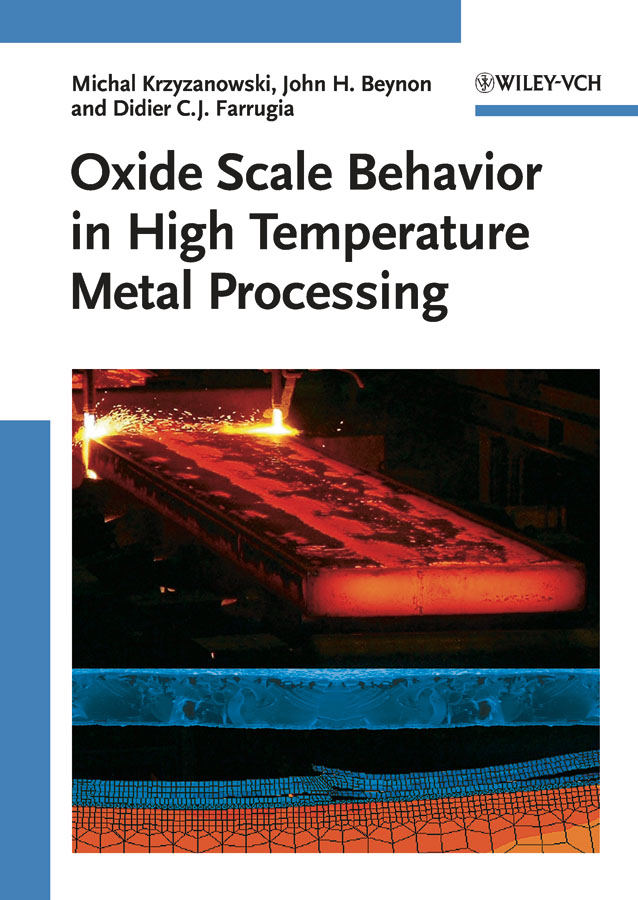
Oxide scale behavior in high temperature metal processing
Krzyzanowski, Michal
Beynon, John H.
The book reviews the recent advances in research on oxide scale behaviour in high-temperature forming processes. The authors emphasise the pivotal role of reproducable experiments to elucidate the oxide scale properties and develop quantitative models with predictive accuracy. Each chapter consists of a detailed, systematic examination of different aspects of oxide scale formation with immediate impact for researchers and developers in industry. The clear and stringent style of presentation gives this three-author book the added value of coherency and easy readability.Michal Krzyzanowski is currently research fellow at the University of Sheffield, UK, in the Department of Engineering Materials. Graduated as physicist he obtained his PhD and DSc degrees in materials science. He was appointed Associate Professor in 1997 at the University of Science and Technology in Krakow, Poland. In 1998, he accepted the invitation of the University of Sheffield to work in the newly founded, multidisciplinary Institute for Microstructural and Mechanical Process Engineering (IMMPETUS). At IMMPETUS, Michal Krzyzanowski conducts his research on thermomechanical metal processing with a focus on characterization and multiscale modelling, application of principles of physics into the detailed numerical analysis. John H. Beynon is Dean of the Faculty of Engineering and Industrial Sciences at Swinburne University of Technology, Melbourne, Australia. He was awarded his PhD in Metallurgy from the University of Sheffield in 1980. Professor Beynon is a fellow of the Institute of Materials, Minerals and Mining, the Institution of Engineers Australia and the Royal Academy of Engineering. His main area of research is the study of the interaction of materials science and applied mechanics to solve engineering problems, particularly in thermomechanical processing and structural integrity, by using computer-based modeling, experiment and industrial input. Didier C. J. Farrugia is currently scientific fellow at Corus Swinden Technology Centre in Rotherham,UK, and a fellow of the Institute of Materials, Minerals and Mining (IOM3). After graduating with a PhD at the CEMEF, Mines-ParisTech in 1990, he has worked for more than 19 years in the steel R&D industry where his research activities include metal forming, material science, modeling, numerical techniques andtribology. Didier Farrugia has set up and managed major collaborative programs, and has been involved in technology transfer, implementation and exploitation within both industry and academia for many years. In recognition of his achievements, he was awarded the 2008 Dowding Medal and Prize.
- ISBN: 978-3-527-32518-4
- Editorial: Wiley-VCH
- Encuadernacion: Cartoné
- Páginas: 384
- Fecha Publicación: 21/04/2010
- Nº Volúmenes: 1
- Idioma: Inglés
